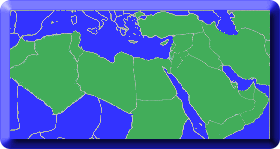
Topics in Middle Eastern and North African Economies
Document Type
Article
Publication Date
5-1-2016
Journal Title
Topics in Middle Eastern and North African Economies
Volume
18
Publisher
Middle East Economic Association and Loyola University Chicago
Abstract
The main source of Islamic Law, the Sharia, provides not only spiritual leadership for human beings, or guidelines how to practice the religion of Islam properly, but also includes normative implications for the design of the political and economic sphere of a state. Beyond the sheer scientific interest, these implications of Islam became relevant (again) in the context of the recent transition processes in the Middle East and North Africa. Despite not being finished yet, the transformations will raise new challenges for their perspective economies and the political systems as many religion-based parties (e.g. Al Nahda in Tunisia) become important (if not the leading) forces in their respective countries. While many empirical studies, based on sheer quantitative approaches, conclude that, in Muslim countries, democracy—and in a way market-oriented economic principles—is less developed, most of these approaches suffer from a relevant shortcoming. Indeed, these studies include countries with Muslim majorities and take them as a proxy for the influence of Islam on democracy or the development of a market economy. But this equation may be too easy. At least in modern national states with Muslim majorities, the principles of Sharia have almost never been applied (duly) when designing the political and economic system. Consequently, these analyses—in the best case—measure the biased effects of a “mixed influence” of Sharia Law and other societal or traditional factors on democracy and the shape and structure of the economy, but not the isolated effects of the Sharia Law. Our paper closes this gap, as we scrutinize the implications of Sharia Law in favor or against a democratic system (or transition towards it) and market-oriented economic system, focussing on the principles as laid down in the text per se. While Sharia Law is interpreted quite differently among Islamic scholars and groups, there are “core elements” which are more or less universally accepted among scholars and consequently are focused on in our work. First, we isolate the main lines of Sharia Law which may be relevant for the design of a political order or constitution as well as an economic system. Then, based on a triangulation approach, we examine how far the normative specifications in Sharia Law are coherent with the basics of democracy, namely separation of powers and judicial independence, rule of law, citizens’ rights, participation and accountability, and main principles of market economies, as competition and transparency. For that purpose, in addition to our theoretical analysis, we test empirically if the fact that a country has a Muslim majority makes it more prone towards a transition towards more democracy. A short summary and some policy recommendations close our paper.
Identifier
2334-282X
ISSN
2334-282X
Recommended Citation
Schomaker, Rahel, "Sharia Law and the Transition Towards More Democracy and a Market Economy – Restrictions and Opportunities". Topics in Middle Eastern and North African Economies, electronic journal, 18, Middle East Economic Association and Loyola University Chicago, 2016, http://www.luc.edu/orgs/meea/
Creative Commons License

This work is licensed under a Creative Commons Attribution-Noncommercial-No Derivative Works 3.0 License.
Copyright Statement
© 2016 the authors



Comments
Presentation of the articles in the Topics in Middle Eastern and North African Economies was made possible by a limited license granted to Loyola University Chicago and Middle East Economics Association from the authors who have retained all copyrights in the articles.